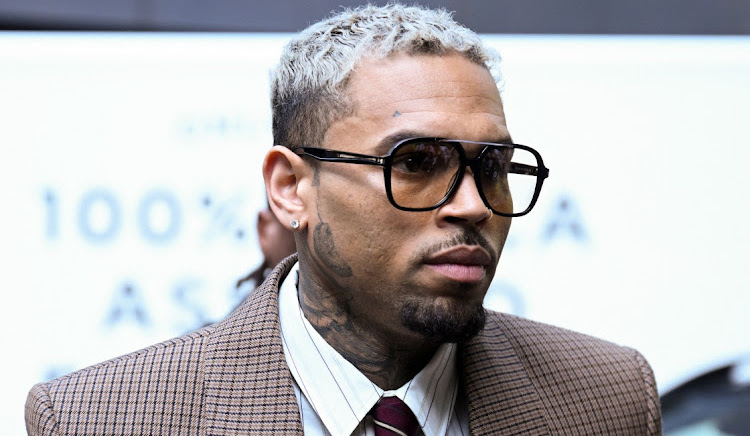
Chris Brown, Fame, and the Cost of Second Chances
South London doesn’t usually wake up thinking about Chris Brown, but today the rhythms of the city shifted a little. Southwark Crown Court’s steps were lined not just with press but with fans, some of them holding up phones, others holding quiet hope that their favourite singer might glance their way. Chris Brown, two-time Grammy winner, global hitmaker, had arrived to face yet another round of serious legal questions, this time connected to an alleged nightclub assault.
It wasn’t the usual loud tabloid circus. The energy felt more muted, maybe because this story has played out before, in different courts, in different countries. But for many in the UK, this case feels heavier, more complicated. Brown, now 36, had been arrested earlier this year in Manchester after flying back into the UK for his tour. That’s when things came full circle, an incident from February 2023 at a high-end Mayfair nightclub called TAPE finally caught up with him.
What started as a single charge, grievous bodily harm with intent, has now widened into something larger. Two more counts have been added, one for assault causing actual bodily harm, the other for possessing an offensive weapon, namely a tequila bottle. It all ties back to a reported attack on music producer Abe Diaw, who alleges that Brown struck him with a bottle and continued to punch and kick him after he fell. CCTV footage, according to prosecutors, backs up much of the sequence. Brown’s co-defendant, Omololu “Hoody Baby” Akinlolu, faces the same accusations.
In court, the atmosphere was surprisingly restrained. Brown confirmed his name, entered not guilty pleas, and said very little else. Around 20 supporters had gathered in the public gallery. Some murmured “We love you, Chris” as he stood. The courtroom wasn’t filled with the high-profile handlers or flashy lawyers often seen in celebrity trials, instead, it felt almost workmanlike, another date on a long legal calendar.
For those who’ve followed Chris Brown’s career from the early 2000s, this isn’t unfamiliar territory. His past legal troubles, most notably the 2009 assault on Rihanna, cast a long shadow over his public image. What’s different now is the international layer. Brown is currently balancing strict UK bail conditions with his European tour. He reportedly posted a £5 million bail bond to continue performing, including shows in Cardiff and beyond. Part of his bail requires surrendering his passport when not actively touring, along with a condition to avoid TAPE nightclub and any contact with the complainant.
There’s a strange tension in that, the spectacle of Chris Brown headlining concerts at packed arenas while simultaneously preparing for trial. It raises inevitable questions about celebrity privilege. Would any other defendant with such serious allegations be allowed to travel internationally? Would an ordinary person secure bail so easily?
Yet for Brown’s fans, especially younger South African audiences where his music still holds a strong following, there’s often a divide. Some see the court cases as background noise. The music, for them, is what matters. Others point to the broader conversations about gender-based violence and accountability, especially in countries like South Africa where those issues are part of daily headlines.
There’s also the financial side of things. The complainant, Abe Diaw, has filed a civil suit for £12 million in damages, although recent reports suggest he may consider withdrawing the case. Still, the criminal trial remains. Set for October 2026, it’s expected to run for at least a week, bringing all the evidence to light, CCTV footage, witness statements, and the physical evidence that prompted prosecutors to escalate from a single charge to multiple ones.
From a legal perspective, the fact that prosecutors added these two extra charges months after the initial indictment shows how dynamic and evolving the case is. It isn’t unusual for new evidence or strategy shifts to push things in a different direction. But it does add pressure on Brown’s defence team.
One thing that stands out is how relatively low-key everything feels. Unlike American celebrity court cases, where camera crews broadcast every entrance and exit, UK courts maintain tighter restrictions. No cameras in courtrooms. No paparazzi crowding inside. That restraint, however, doesn’t stop social media from spinning. Within hours of Brown’s appearance, fan accounts, entertainment blogs, and legal commentators were dissecting every detail, from what he wore to how serious his expression looked.
 For Brown himself, this latest legal chapter comes at a curious point in his career. He’s older now, no longer the breakout R&B prodigy but a seasoned, if complicated, figure in pop culture. His most recent tour, “Breezy Bowl XX,” mixes old hits with newer material. Reviews have been generally positive, though often punctuated by reminders of his history. It’s a balancing act that artists like Brown know well, staying relevant while managing public opinion shaped by both music and misdemeanours.
For Brown himself, this latest legal chapter comes at a curious point in his career. He’s older now, no longer the breakout R&B prodigy but a seasoned, if complicated, figure in pop culture. His most recent tour, “Breezy Bowl XX,” mixes old hits with newer material. Reviews have been generally positive, though often punctuated by reminders of his history. It’s a balancing act that artists like Brown know well, staying relevant while managing public opinion shaped by both music and misdemeanours.
Then there’s the cultural weight of it all. In a country still grappling with issues of violence and celebrity accountability, cases like this aren’t just about the individuals involved. They become mirrors for larger conversations. Should artists with these kinds of charges continue touring? Does their talent excuse, overshadow, or simply complicate their public standing?
Walking past Southwark Crown Court on a day like this, you might not see answers to those questions. What you would see, instead, are quiet contrasts, the polished glass of office buildings next to the old stone courthouse. Chris Brown’s tour bus parked discreetly nearby. A handful of fans scrolling on their phones, waiting for a glimpse of him. Journalists sipping takeaway coffee, notebooks in hand.
These moments feel small, but they add up. They shape how we remember stories like this, not just through big headlines but through the spaces in between, the quiet walk to court, the unsaid words in a packed public gallery, the mix of anticipation and fatigue in everyone’s eyes.
The next formal step is Brown’s trial on 26 October 2026. Until then, things stay in a holding pattern. Court dates. Concerts. Social media debates. For now, there’s no dramatic resolution, just the slow, steady unfolding of a case where music and law collide once again. And in the middle of it all, a figure both familiar and divisive, standing quietly before the judge, saying only his name.




